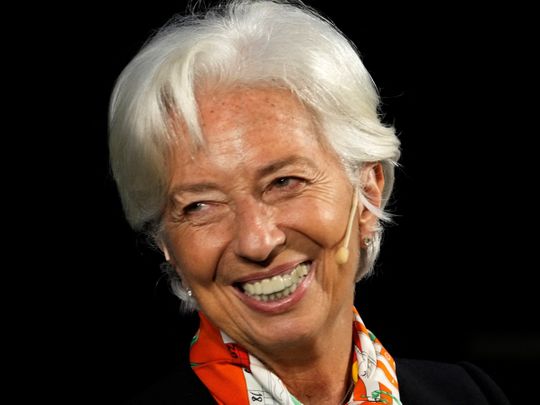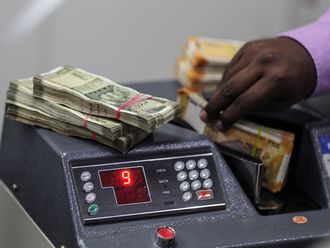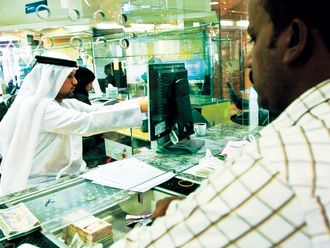
Brussels: European Central Bank President Christine Lagarde said interest rates may need to be lifted to restrictive levels to drag inflation back to the 2 per cent target.
After raising borrowing costs by 2 percentage points in three months, the ECB may need take them to a point where they act as a brake on the economy, Lagarde said in Tallinn, Estonia, which has endured the euro zone’s worst surge in consumer prices, topping 25 per cent.
“Our job is far from being completed,” Lagarde said Friday in a speech. “And withdrawing accommodation may not be enough to bring inflation back to our target.”
ECB officials are sticking to their guns on the need to combat inflation, even as an economic downturn looms and some central banks ease the pace of hikes. Lagarde said Thursday that a “mild recession” wouldn’t be sufficient to tame price growth that’s more than five times the 2 per cent target - the most since the euro was introduced.
Inflation will probably remain above-target for an extended period, raising the risk of a wage-price spiral, ECB Vice President Luis de Guindos said earlier Friday.
“The longer inflation levels stay above our target, the greater the risk of second-round effects,” he said. “We expect to raise interest rates further.”
Rates aren’t the only instrument at the ECB’s disposal. As officials prepare to present in December the “key principles” of how to shrink the approximately 5 trillion euros ($4.9 trillion) of bonds purchased as stimulus in recent crises, Lagarde said officials are carefully watching similar efforts by other central banks.
“We have to collectively admit that we don’t know a lot about quantitative tightening,” she said. QT “is for the moment experimented by a couple of other central banks, the Bank of England being a case in point in particular, and we’re learning from what they’re doing.”
While a recession may be under way by then, the economy of the 19-nation euro area, held up better than expected in the third quarter, led by a positive growth surprise in Germany, according to data released this week. But as inflation hit 10.7 per cent last month, the likelihood of a third straight three-quarter-point increase in rates is rising.
“We must not, and will not, let high inflation become entrenched,” Lagarde said. “We are committed to bringing inflation back down to our medium-term target, and we are determined to take the necessary measures to do so.”












